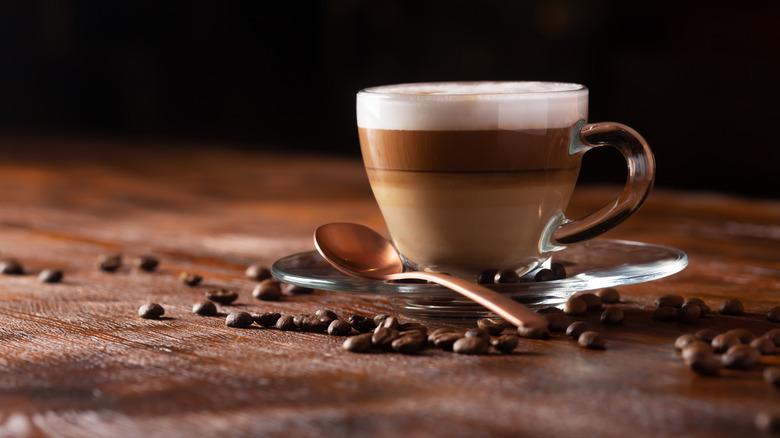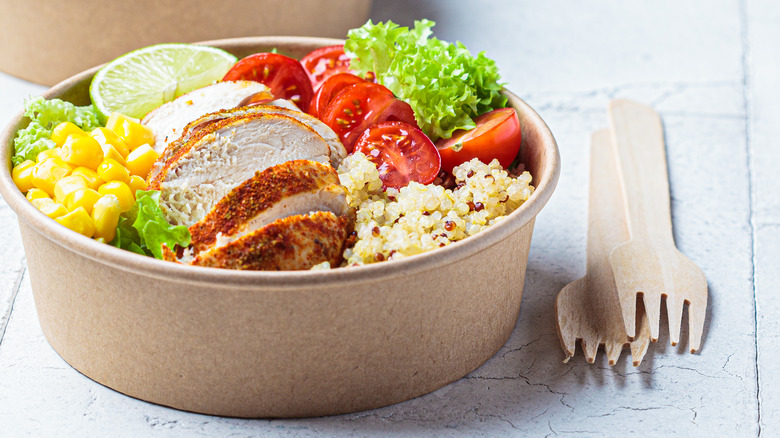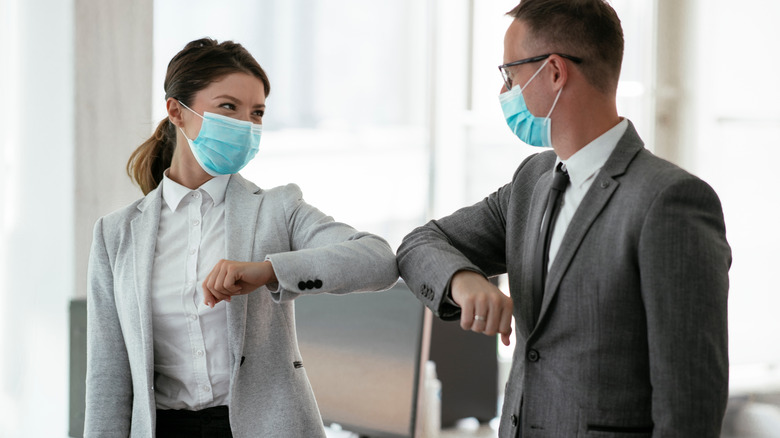Study Reveals The Relationship Between Drinking Coffee And COVID
It's been more than two years since the first coronavirus cases were first widely reported, and both doctors and researchers have had more time to figure out not only what makes the virus tick, but what helps us build up our immune systems so that our bodies are in a better position to fight it. And it turns out that the one thing that gives our immune system a bit of a kick so that it can better deal with COVID-19 is something to help us face the morning anyway — our cups of coffee.
According to a study conducted by Northwestern University, at least one cup of coffee a day can cut your risk of developing COVID by 10%; as does eating just over half a serving (or 0.67 servings, to be exact) of cooked or raw vegetables — except for potatoes that is. But if you consume processed meat, just 0.43 servings is enough to heighten your risk of developing COVID-19. The research focused on those who returned a positive coronavirus test.
Coffee, vegetables, and COVID-19 immunity
Northwestern University associate professor of preventive medicine Marilyn Cornelis, who was part of the research team, didn't think it was the caffeine that made coffee a magic slingshot against COVID. "Alternatively, it could be other constituents of coffee that are unique and make it distinct from tea. For example, tea is often rich in flavonoids. Whereas with coffee, it's more polyphenols, specifically chlorogenic acid, which is actually a relatively unique constituent of coffee. It has been implicated in other diseases not related to COVID-19 but might also be driving this relationship," she explained to WebMD.
What it does indicate, is the importance of good nutrition in building resistance to serious diseases like COVID. "A person's nutrition impacts immunity," Cornelis said. "And the immune system plays a key role in an individual's susceptibility and response to infectious diseases, including COVID-19" (via Northwestern University).
Dr. Karen Studer, who heads up the preventative medicine residency program at California's Loma Linda University agrees, noting, "The benefits of a whole food, plant-based diet — which is mostly fruits and vegetables and grains — will protect you from a lot of diseases. This is exciting because it looks like it's true for infectious disease such as COVID-19, too" (via the Health News Tribune).
States are beginning to relax COVID restrictions
With more and more states looking to ease or drop their COVID-19 restrictions, it isn't surprising that so many of us are looking for as many ways to coronavirus-proof ourselves and our loved ones as best we can. The CDC continues to recommend masking up indoors — regardless of vaccination status, particularly in areas where the potential for "high and substantial transmission is present."
CDC Director Rochelle Walensky doesn't appear too thrilled with state-level decisions to relax COVID guidelines, but says, "[W]e've always said that these decisions are going to have to be made at the local level, and that policies at the local level will look at local cases, they'll look at how local hospitals are doing, they'll look at local vaccination rates" (via Axios). And if you really are in favor of easing COVID-19 restrictions, know that the best way to protect yourself isn't knocking back extra cups of coffee, or enjoying a glass of red wine (or grape juice), popular medical resource sites like WebMD still point to getting vaccinated and following proper medical guidance to avoid coming down with the virus.


